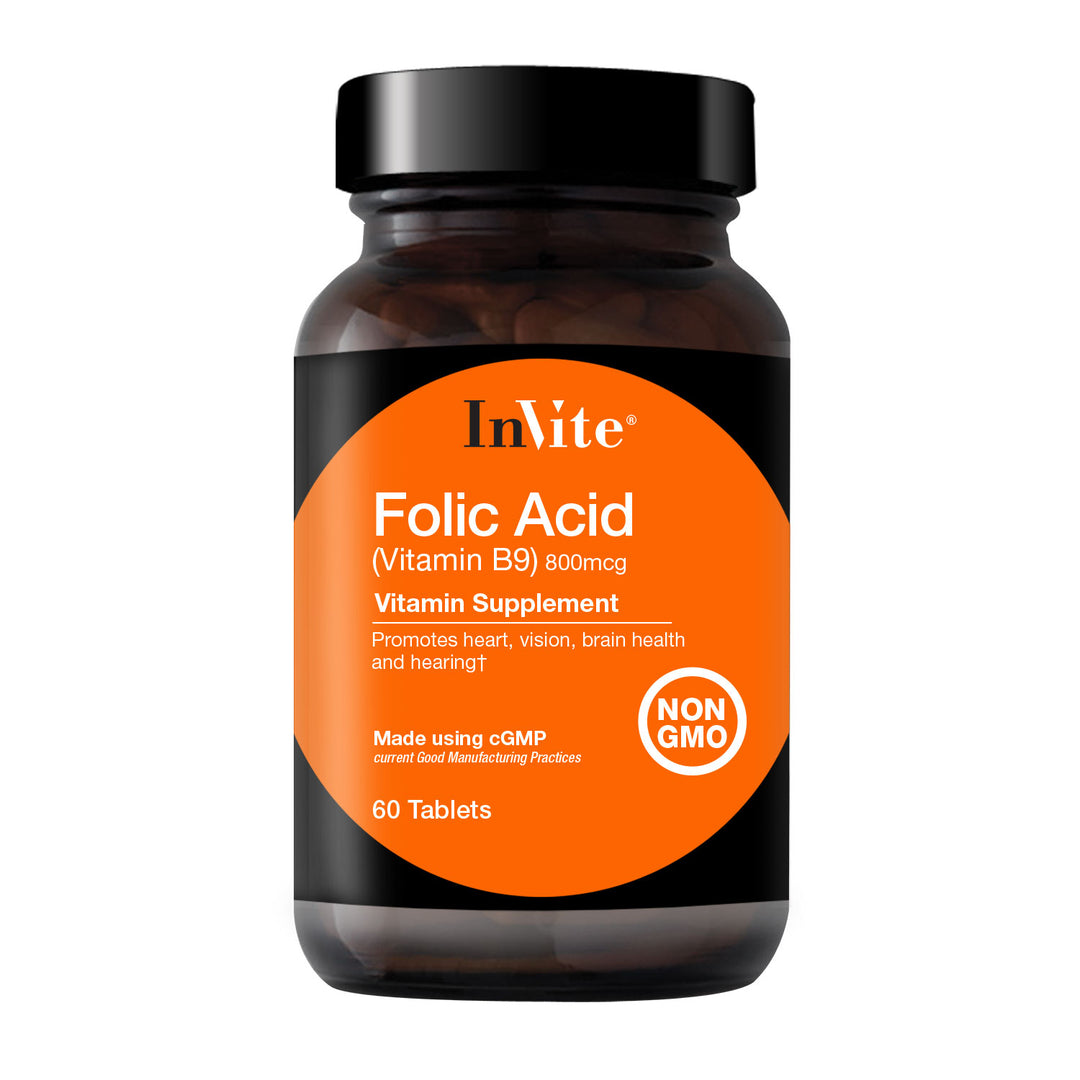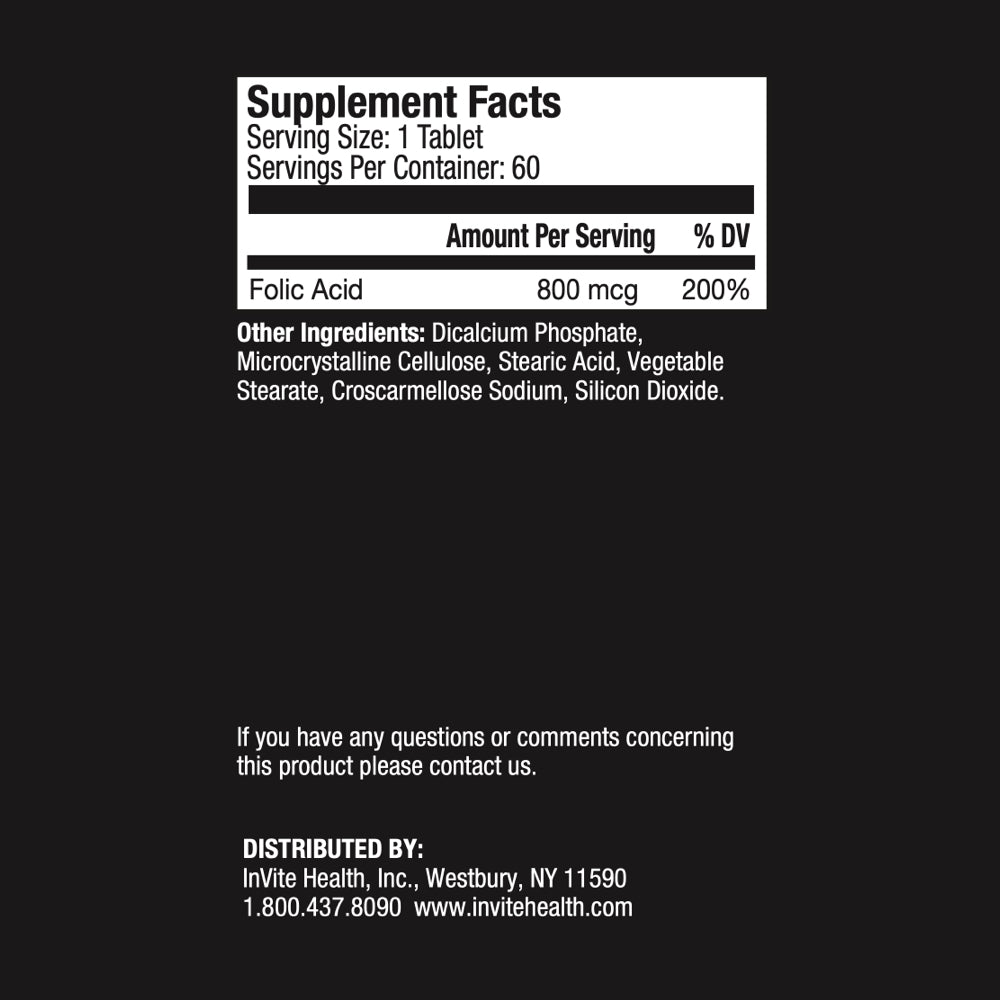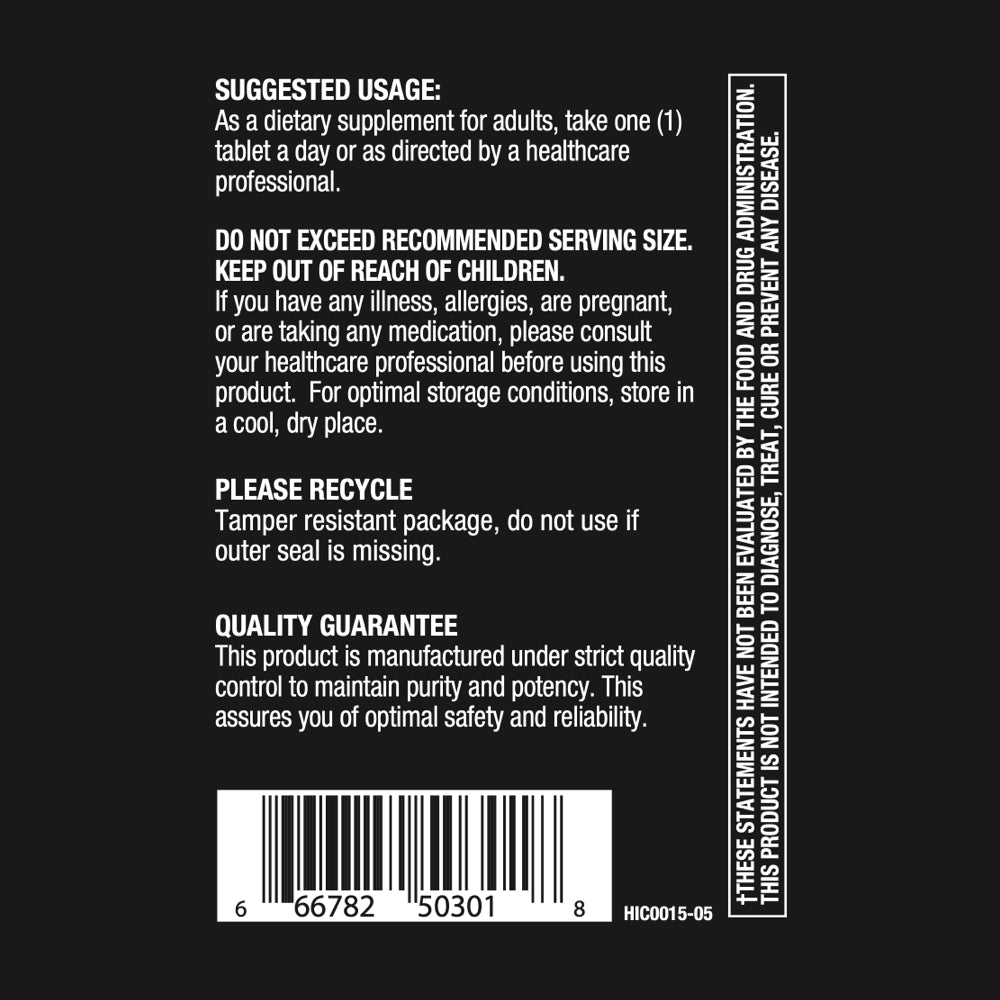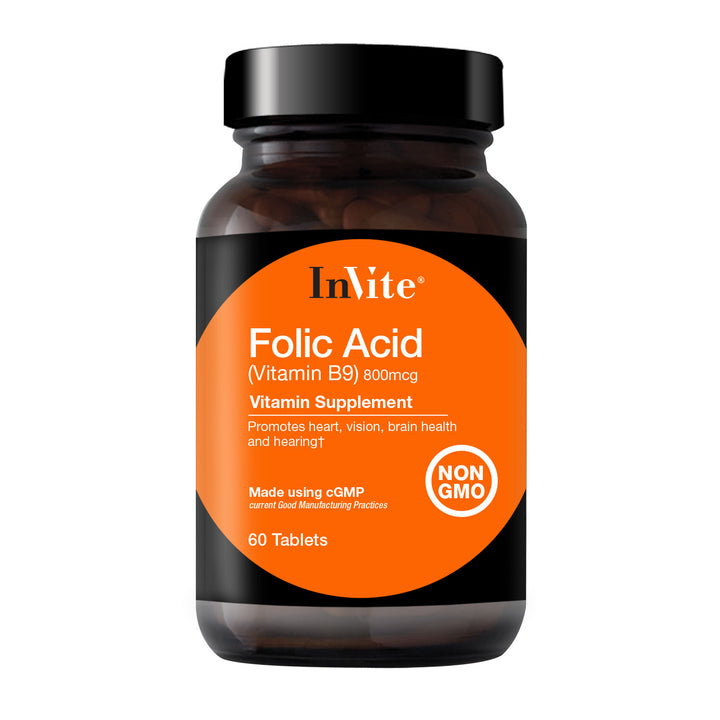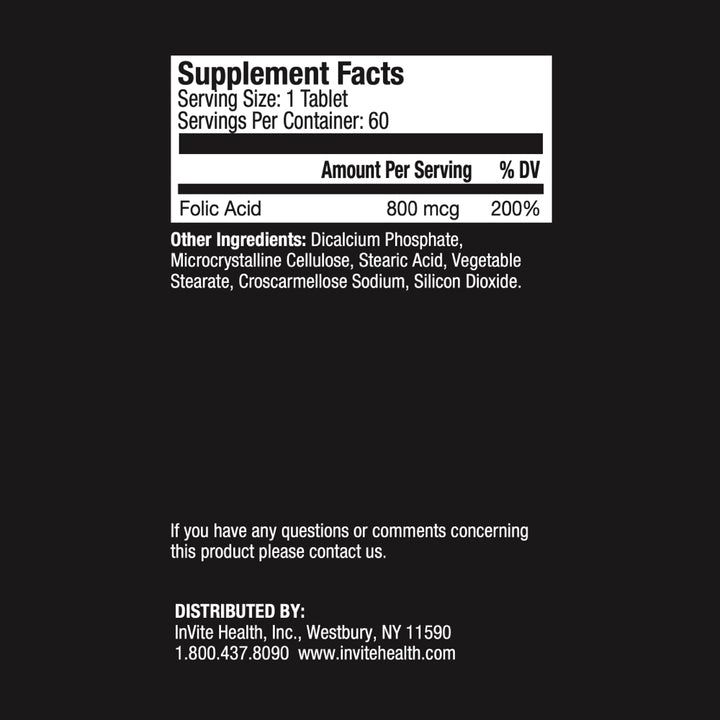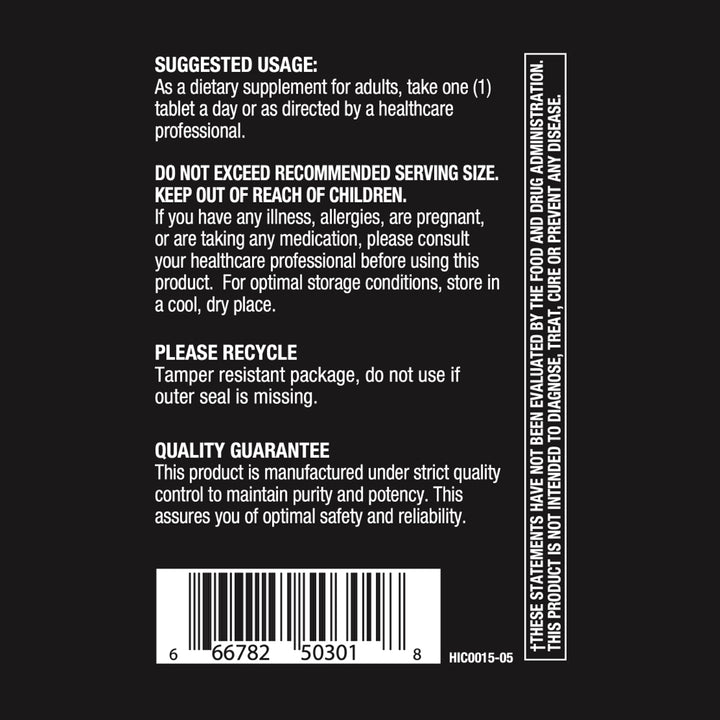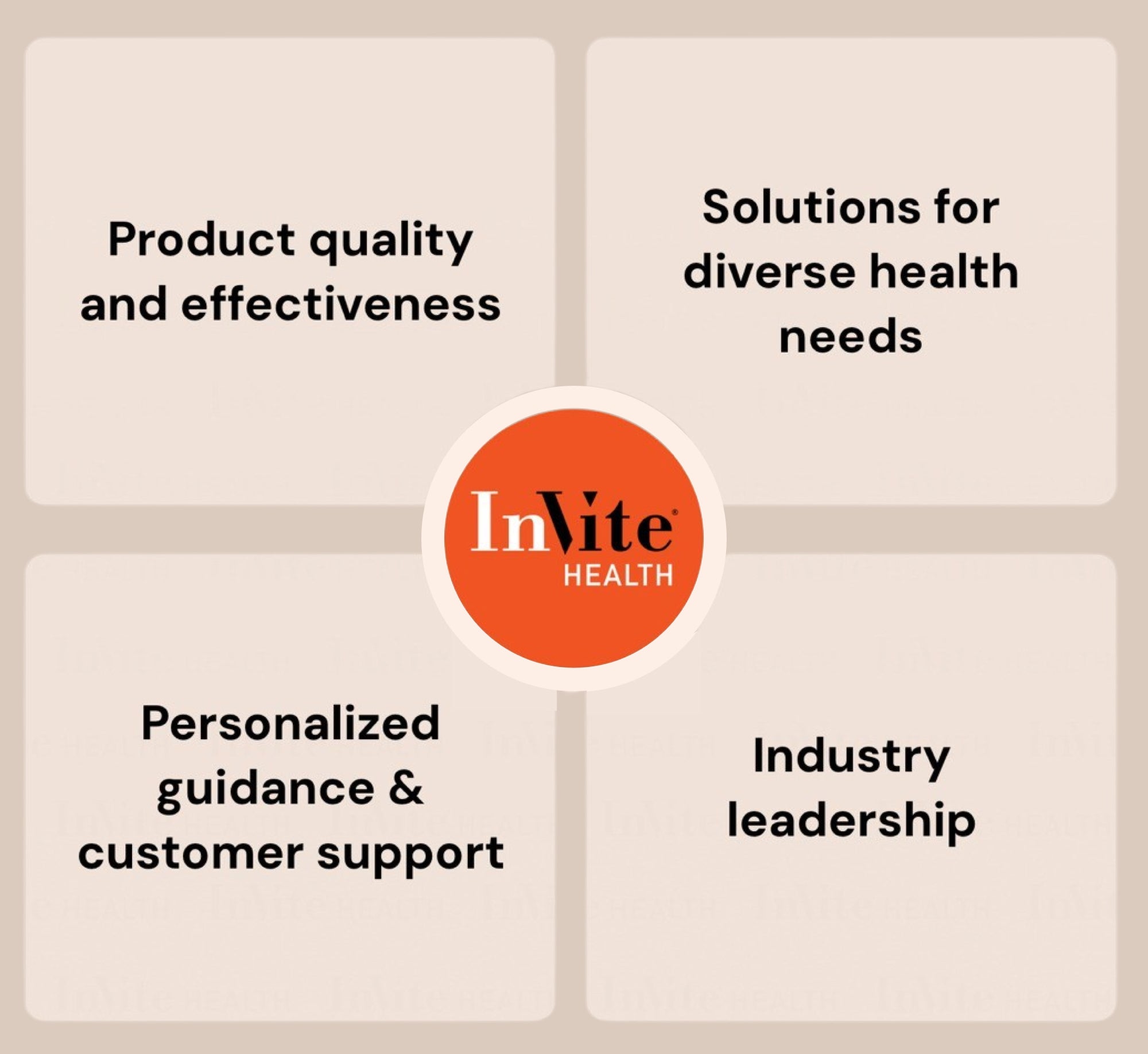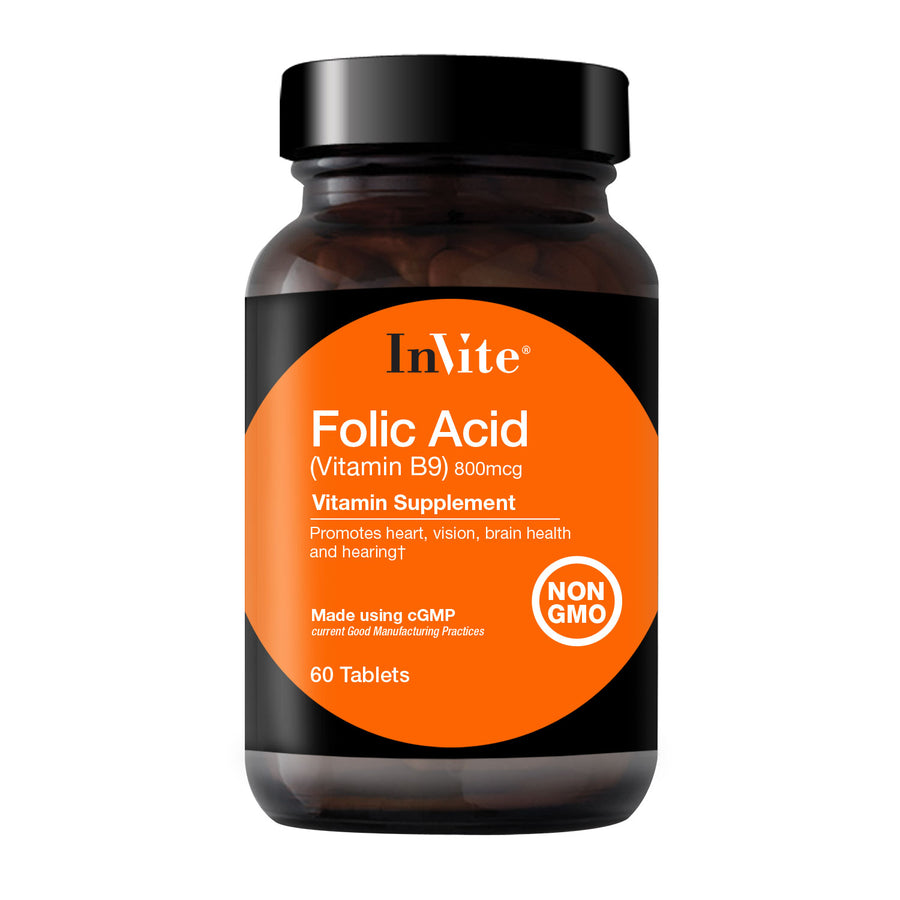Why Buy From InVite®?
Our unwavering commitment to quality ensures that every InVite product meets the highest standards. What sets us apart is our dedication to diverse health needs, offering personalized solutions that acknowledge health as a unique journey. With InVite, you gain more than products; you access tailored guidance and exceptional support. Our experts assist you on your path to well-being, aligning with your goals. As industry leaders, we shape health and wellness through innovation. Experience transformation with InVite – where quality, personalization, and expertise converge for your optimal health journey.
What We Stand For
NUTRITIONIST
FORMULATED
MADE FROM CLINICALLY-TESTED
ACTIVE INGREDIENTS
FREE OF ARTIFICIAL FLAVORS,
COLORS, SWEETENERS & ADDITIVES
NON
GMO
PRESERVATIVE
FREE
CRUELTY
FREE
LAB
VERIFIED
GMP
CERTIFIED
PERSONALIZED
APPROACH


